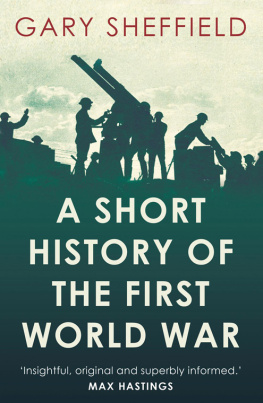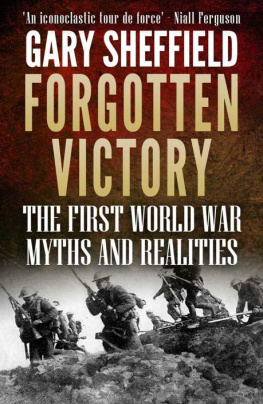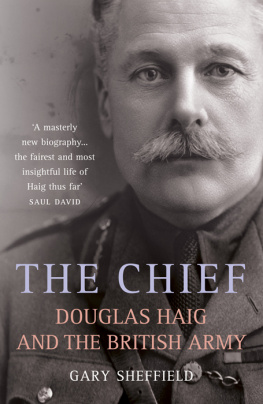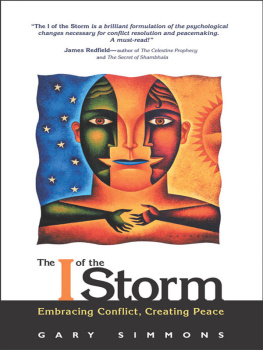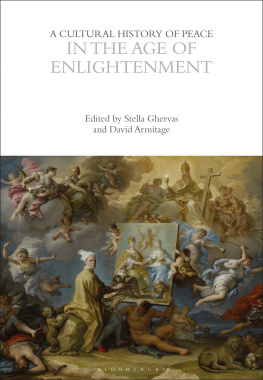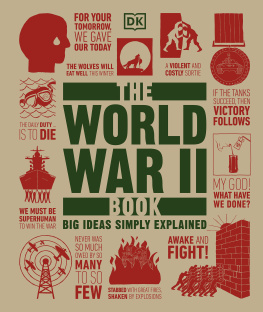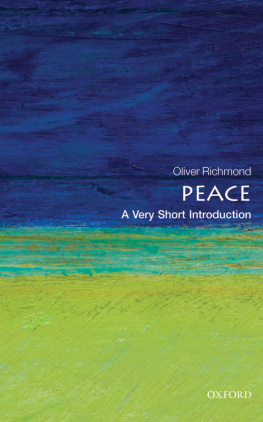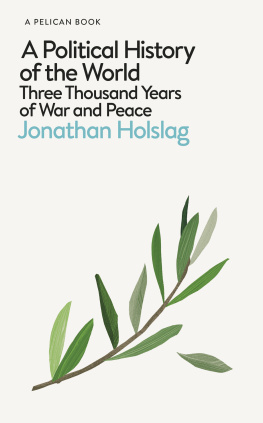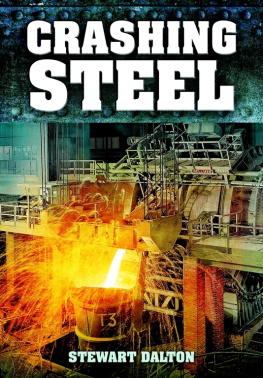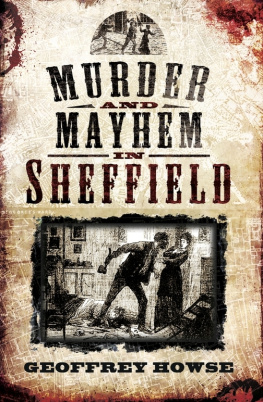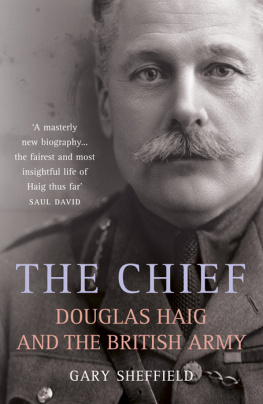
Gary Sheffield is one of Britains foremost historians of the First World War insightful, original and superbly informed.
Max Hastings, bestselling author of Catastrophe
and All Hell Let Loose
In a book all the more impressive for its brevity, Gary Sheffield covers a remarkable amount of ground, from the wars causes to its consequences.
Michael Neiberg, Professor of History at the
University of Southern Mississippi
One of Britains foremost historians of the Great War offers here a clear and concise account of the great catastrophe of the 20 th Century. Drawing on an enormous knowledge of secondary literature combined with many years of immersion in the archives, the result is a masterful mix of narrative and analysis that will prove both provocative and stimulating.
Jeffrey Grey, Professor of History, UNSW Canberra
Professor Gary Sheffield, one of the leading figures in the field, turns his considerable talent to providing the most up-to-date view of this most controversial of conflicts. The result is history at its very best; masterfully written, engaging and thought provoking.
Andrew Wiest, Founding Director of the Center for the Study of War and Society, University of Southern Mississippi
A compelling and original account that should become a set text for anyone wanting to understand the events of 1914-18.
James Holland, bestselling author of The Battle of
Britain and Dam Busters
An excellent introduction to this vast subject which will be accessible to those beginning to study the conflict as well as a stimulating read for more experienced scholars.
Brian Bond, Emeritus Professor of Military History,
Kings College, London
About the Author
Gary Sheffield is Professor of War Studies at the University of Wolverhampton. He is President of the International Guild of Battlefield Guides and a Vice President of the Western Front Association. He has published widely on the First World War and regularly broadcasts on television and radio as well as contributing to numerous journals, magazines and newspapers. Previous books include the acclaimed Forgotten Victory and The Chief: Douglas Haig and the British Army, which was shortlisted for the prestigious Duke of Westminsters Medal.

A Oneworld Book
First published by Oneworld Publications, 2014
This ebook edition published by Oneworld Publications, 2014
Published by Oneworld Publications 2014
Copyright Gary Sheffield 2014
The right of Gary Sheffield to be identified as the Author of this
work has been asserted by him in accordance with the
Copyright, Designs and Patents Act 1988
All rights reserved
Copyright under Berne Convention
A CIP record for this title is available
from the British Library
ISBN 978-1-78074-364-6
eISBN 978-1-78074-512-1
Typeset by Siliconchips Services Ltd, UK
Oneworld Publications
10 Bloomsbury Street
London WC1B 3SR
England
Stay up to date with the latest books,
special offers, and exclusive content from
Oneworld with our monthly newsletter
Sign up on our website
www.oneworld-publications.com
Dedicated to the memory of my father-in-law, Clifford John (Cliff) Davis (1924 2013), who served in the Royal Navy during the Second World War.
Contents
Figure 1 | Wilhelm II |
Figure 2 | Field-Marshal Conrad von Htzendorf |
Figure 3 | David Lloyd George |
Figure 4 | General Erich von Falkenhayn |
Figure 5 | Field-Marshal Sir John French |
Figure 6 | Field-Marshal Helmuth von Moltke the Younger |
Figure 7 | Marshal Joseph Joffre |
Figure 8 | Troops of the British Indian Army in
France, c .1915 |
Figure 9 | Field-Marshal Sir Douglas Haig |
Figure 10 | British Mark I tank on the Somme
battlefield, 1916 |
Figure 11 | Marshal Ferdinand Foch |
Figure 12 | General Erich Ludendorff |
Figure 13 | French truck dragged out of mud by a
team of horses |
Figure 14 | General John J. Pershing |
Figure 15 | Field-Marshal Earl Kitchener of Khartoum |
Figure 16 | British machine-gunners on the
Western Front, c .1917 |
Figure 17 | Nicholas II |
Figure 18 | Georges Clemenceau |
Figure 19 | Woodrow Wilson |
All illustrations are courtesy of the Spencer Jones collection. |
Map 1 | The Western Front |
Map 2 | The Eastern Front |
Map 3 | The Balkans and Gallipoli |
Map 4 | The Italian Front |
Map 5 | The Middle East and Caucasus Fronts |
All maps courtesy of Barbara Taylor. |
The First World War was an event, or rather a series of events, of such importance that it can be a struggle to find words that adequately express its significance. It destroyed the German, Austro-Hungarian, Russian and Ottoman empires. It led to the establishment of a Marxist-Leninist state, the Soviet Union, and sowed the seeds of fascism in Italy and Germany. The British and French colonial empires were simultaneously driven to the zenith of their power, in the process creating the conditions that would, within a couple of generations, lead to their collapse. It killed millions and brought the world, albeit not directly, to an even greater conflagration.
The war also freed nationalities previously confined within larger states to establish independent countries: Czechoslovakia, Poland, Yugoslavia, Ireland. It facilitated the rise of the United States of America to global power and so made capitalist democracy an ideological force to contend with Soviet Marxist-Leninism, setting the scene for the Cold War. Britain, as a direct result of the war, became more thoroughgoingly democratic. The use of war to achieve political goals was discredited in the democracies, while being regarded as legitimate and even desirable by fascists and communists. Cultural life literature, theatre, film, art, music was irrevocably marked. After the guns of August opened fire, nothing was ever quite the same.
Harry Patch, the last surviving British soldier of the First World War, died in July 2009. His death, noted a distinguished historian, consigns Britains part in the First World War into history. The First World War still feels more like current affairs in much of the English-speaking world and in some parts of Europe.
Politicians, actors and pop stars felt compelled to share their views on the conflict. In May 2013, a letter from a group of actors, musicians, poets and politicians was published in the Guardian , a liberal-left British newspaper. It attacked the UK governments remembrance programme, declaring Far from being a War to end all wars or a Victory for democracy this was a military disaster and a human catastrophe. Lays point was exaggerated but typically astute. Historical research and analysis are highly specialised activities. More than most historical events, the First World War prompts people to go public with views based on emotion, limited knowledge and flawed understanding.
Next page
